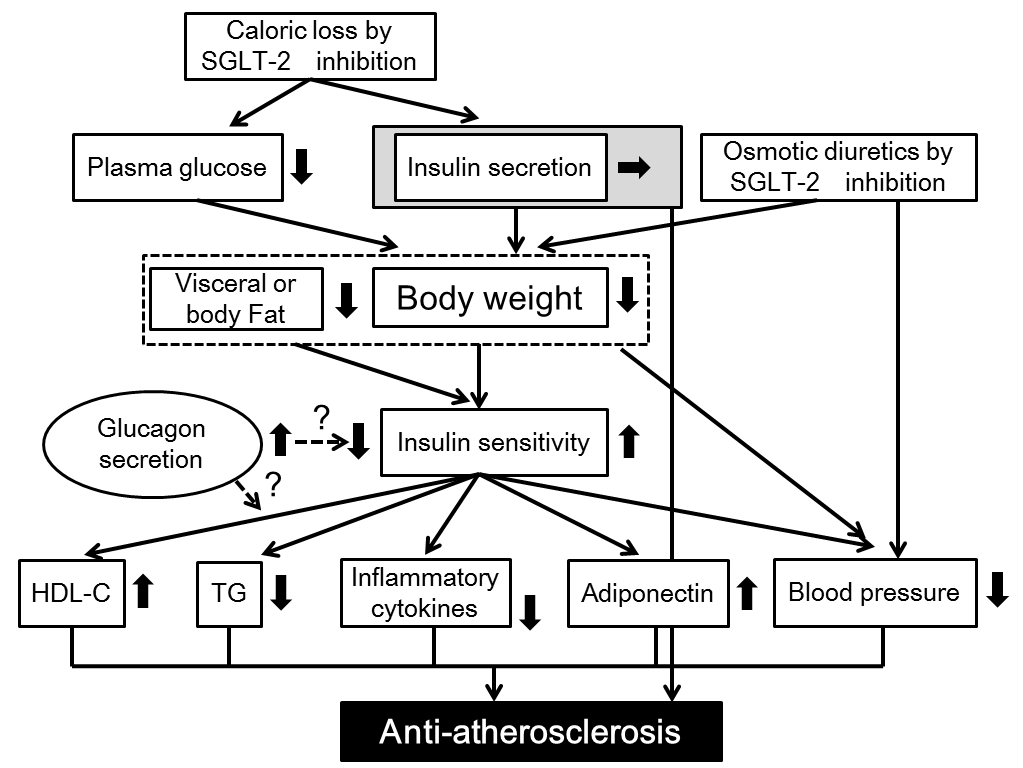
Hidekatsu Yanai
National Center for Global Health and Medicine Kohnodai Hospital, Japan
Title: Possible Vascular And Renal Protective Effects Of Sodium-Glucose Co-Transporter 2 Inhibitors
Biography
Biography: Hidekatsu Yanai
Abstract
The new drug for type 2 diabetes, the sodium-glucose co-transporter 2 inhibitors (SGLT2i), leads to reduction of renal tubular glucose reabsorption and reduction of plasma glucose, in an insulin-independent manner. For the treatment of diabetes, in addition to glucose control, the management of coronary risk factors is crucial. First, the author searched for the published articles about the possible anti-atherosclerotic effects beyond glucose lowering of SGLT2i, by using PubMed, and found that SGLT2i are proved to be significantly associated with weight loss and reduction of blood pressure by a relatively large number of studies. Second, we retrospectively picked up patients who had been continuously prescribed SGLT2i by a chart-based analysis, and compared the data before the SGLT2i treatment with the data at 1, 2, 3 and 6 months after the SGLT2i treatment started, and found that SGLT2i significantly reduced HbA1c and body weight and improved liver function. Further, the author found a significant difference in hypoglycemic effect between canagliflozin with a low potency to inhibit SGLT1 and tofogliflozin which is a highly selective SGLT2 inhibitor. As the key to resolve this issue, a different distribution between SGLT1 (intestine) and SGLT2 (kidney) came to my mind. SGLT2i with potency to inhibit SGLT1 may be more effective to lower glucose as compared with highly selective SGLT2i, in patients with renal insufficiency. To understand an influence of the estimated glomerular filtration rate (eGFR) on improvement in metabolic parameters by SGLT2i, we sub-analyzed our study and discovered that body weight decreased by SGLT2i, independently of eGFR, however, the changes in HbA1c and liver function depended on eGFR. Recently, Sano reported that elevation of hematocrit by SGLT2i may be a surrogate marker for recovery from reversible tubulointerstitial injury; it was found that erythropoietin could be one of renoprotective effects of SGLT2i.



